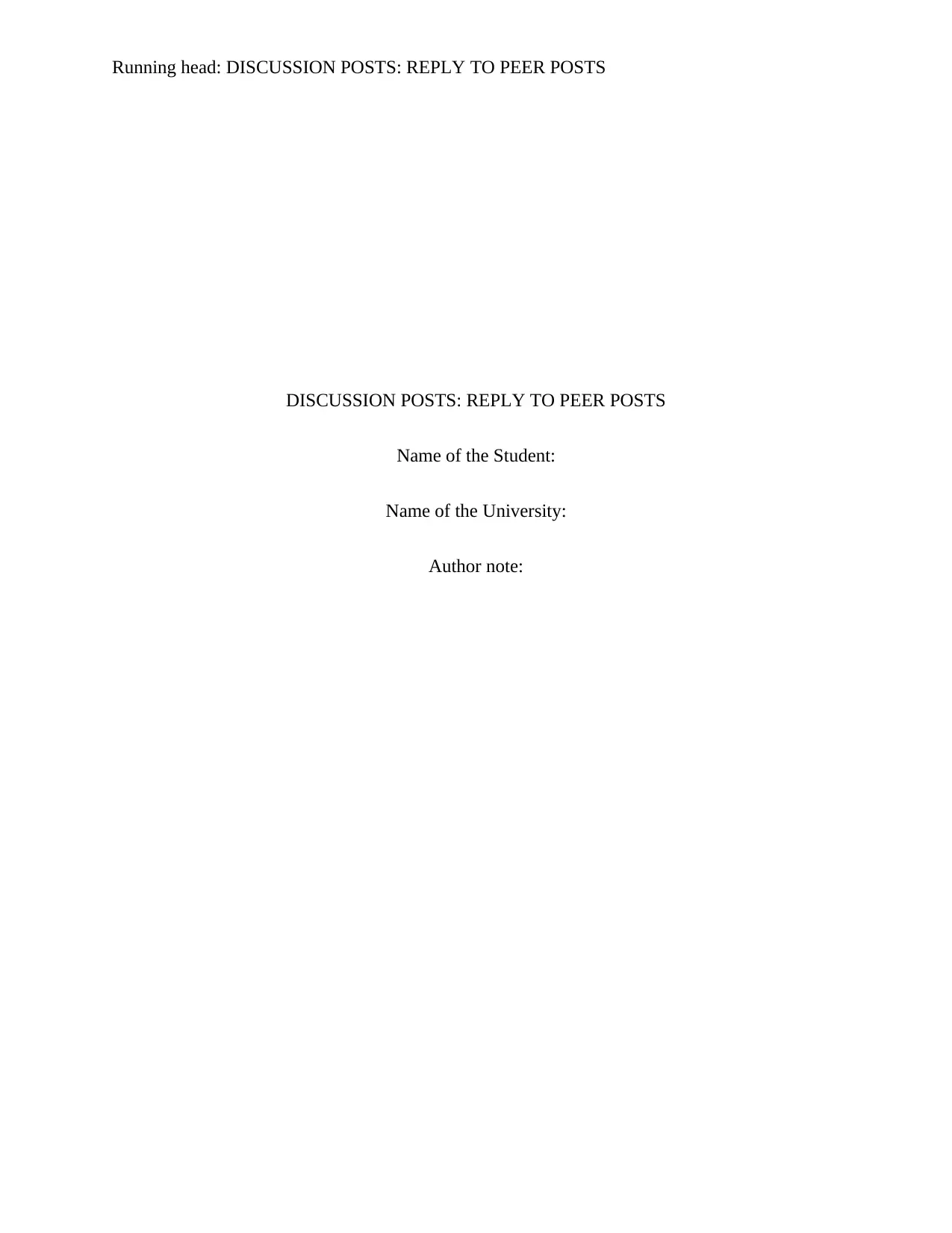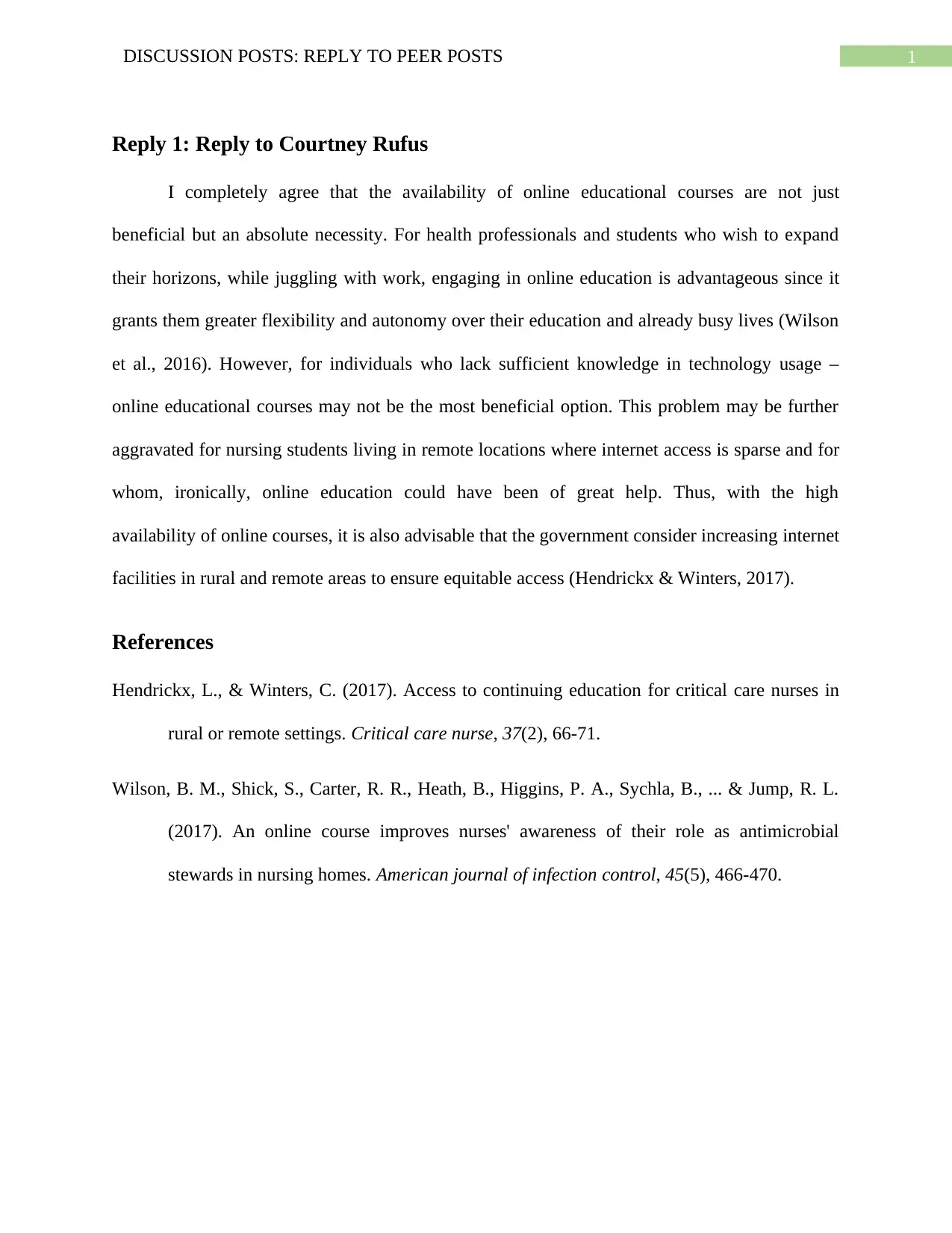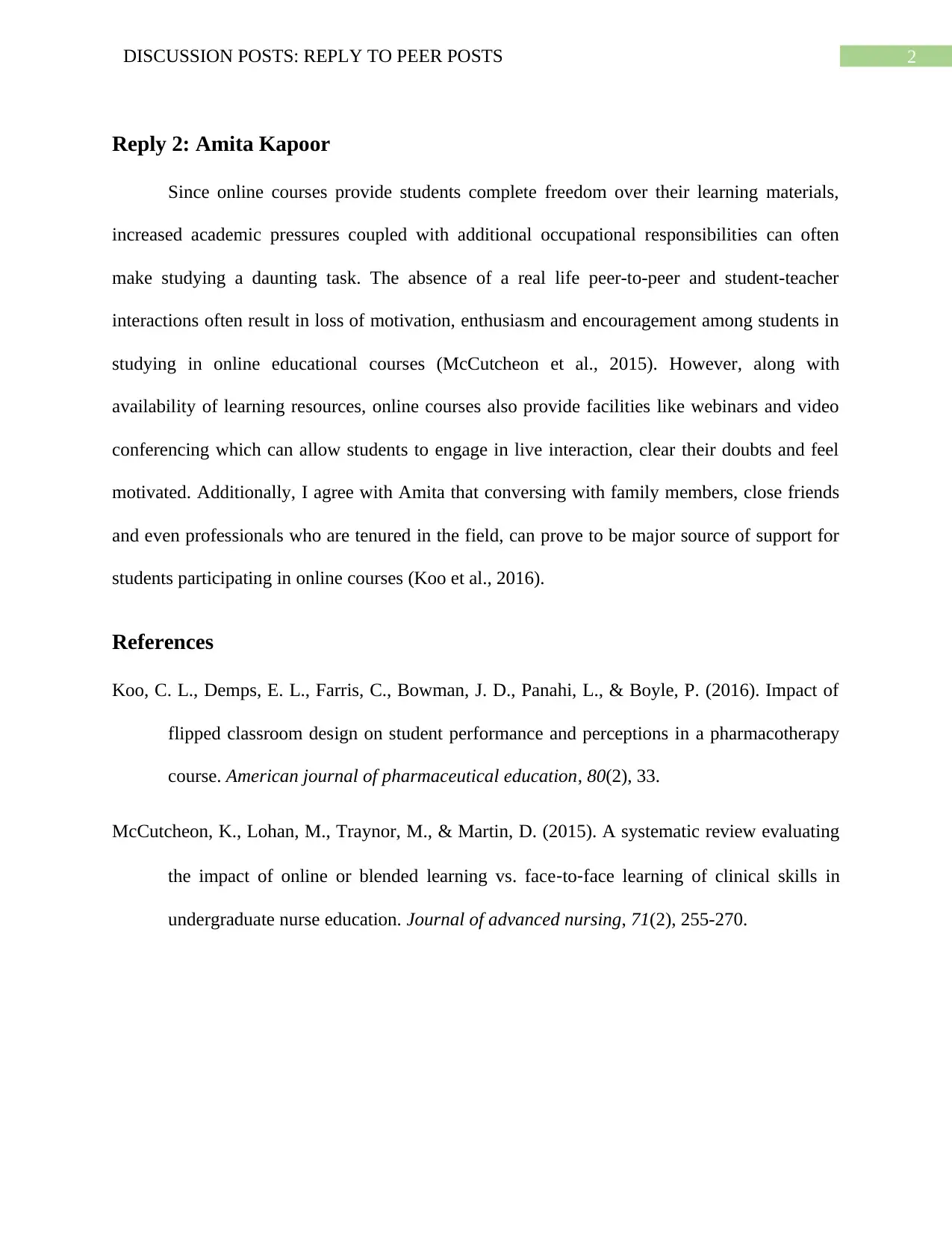University Nursing Program: Discussion Replies on Online Education
VerifiedAdded on 2022/09/05
|3
|582
|25
Discussion Board Post
AI Summary
This assignment comprises two discussion replies addressing the benefits and challenges of online education, particularly within the context of nursing programs. The first reply agrees with the necessity of online courses for health professionals, highlighting flexibility but acknowledging potential issues for those with limited technological proficiency or internet access. It suggests improving internet access in rural areas to ensure equitable opportunities. The second reply discusses the impact of online courses on student motivation, suggesting that the lack of face-to-face interaction may lead to decreased engagement. It proposes that webinars, video conferencing, and support from family and professionals can help in mitigating the challenges. Both replies reference supporting literature to bolster their arguments, providing a comprehensive analysis of the topic.
1 out of 3






![[object Object]](/_next/static/media/star-bottom.7253800d.svg)